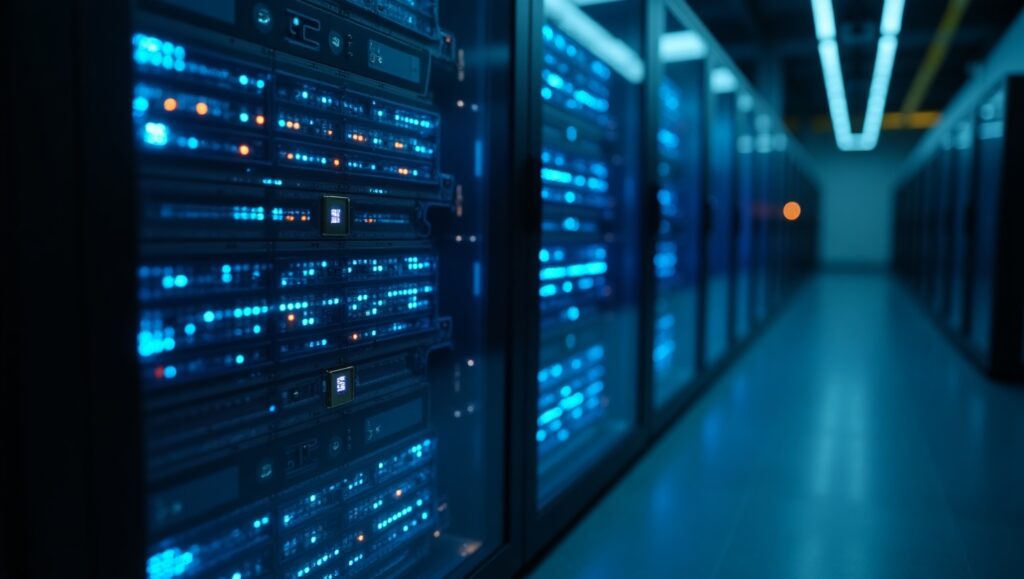Artificial intelligence has long impressed us with its ability to recognize images, generate text, and even compose music. But solving complex, abstract problems – the kind that require reasoning, creativity, and strategy – has traditionally been a human stronghold. That’s why Google DeepMind’s recent announcement about Gemini 2.5 is being described as a “historic breakthrough” in AI development.
In 2025, DeepMind revealed that Gemini 2.5 successfully tackled a real-world programming challenge used in the International Collegiate Programming Contest (ICPC) – a competition considered one of the toughest arenas for algorithmic problem-solving. Unlike previous models that excel at pattern recognition but falter in reasoning, Gemini 2.5 showed it could outperform human competitors in certain problem categories.
What Makes Gemini 2.5 Different?
Earlier AI systems – like GPT-based models or image classifiers – were often limited to predicting patterns based on training data. They could write code, yes, but usually struggled with multi-step reasoning or adapting solutions when conditions changed.
Gemini 2.5 is different because it:
- Combines Symbolic Reasoning with Machine Learning
It doesn’t just guess based on probability – it can break problems down logically and follow structured reasoning paths.
- Handles Complex Multi-Step Problems
From dynamic programming to graph theory, Gemini 2.5 can solve challenges that require understanding relationships, constraints, and strategies.
- Generalizes Beyond Training Data
Instead of memorizing answers, the system can adapt its reasoning to unseen scenarios, a major leap toward more general intelligence.
Why This Is a Big Deal
DeepMind’s claim isn’t just about beating a benchmark – it represents a shift in what AI is capable of:
- Closer to Human-Like Thinking
AI that can reason and adapt goes beyond being a “calculator on steroids”. It’s entering the realm of problem-solving intelligence.
- Expanding Use Cases
If AI can tackle abstract problems, it could help in drug discovery, climate modelling, logistics, financial forecasting, and scientific research – fields that depend on complex reasoning.
- Challenging Human Expertise
Traditionally, competitions like ICPC have been dominated by the sharpest human minds. Now, AI competing – and even winning – signals that the playing field is shifting.
Opportunities and Risks
Like any breakthrough, Gemini 2.5 opens both exciting opportunities and important questions:
- Opportunities
- Accelerating scientific discoveries by solving problems too complex for human teams alone.
- Optimizing global supply chains and infrastructure with smarter algorithms.
- Democratizing expertise by making advanced reasoning tools accessible.
- Risks
- Over-reliance on AI: If humans stop training their own problem-solving skills, dependence on machines could become risky.
- Ethical questions: Who is accountable if an AI-driven solution fails?
- Weaponization of intelligence: As with any powerful technology, misuse is a concern.
The Road Toward AGI?
For years, the tech community has debated the path to Artificial General Intelligence (AGI) – AI that can think, learn, and adapt like humans across many domains. While Gemini 2.5 isn’t AGI, it’s a step closer, showing that reasoning can be engineered into machines.
Some experts say this is one of the clearest signs, yet that AI is moving beyond narrow tasks and into general-purpose problem-solving. Others urge caution, reminding us that human creativity, ethics and judgement remain critical in guiding AI’s role in society.
Conclusion
Google DeepMind’s Gemini 2.5 is more than just another AI upgrade – it’s a glimpse into the future of machine intelligence. By demonstrating the ability to solve abstract, multi-step problems that were once considered the exclusive domain of humans, Gemini 2.5 marks a historic milestone in AI research.
The real question now is: How will we harness this new level of intelligence? If used responsibly, Gemini 2.5 and its successors could accelerate progress in nearly every field of human endeavor. But it will also change us to rethink what it means to be the smartest problem-solvers on the planet.

